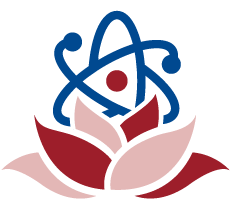| antibody འགོག་གཟུགས། | biol. A protein produced in the blood or tissues in response to the presence of a specific foreign antigen. Antibodies provide immunity against certain microorganisms and toxins by binding with them and often by deactivating them. | རྒྱུས་མེད་ཀྱི་འགོག་ཟུངས་སྐྱེད་རྫས་བྱེ་བྲག་པ་ཞིག་མངོན་ཡོང་བ་ལ་ཡ་ལན་གྱི་ཚུལ་དུ་ཕུང་གྲུབ་ཀྱི་ནང་ངམ་ཁྲག་གི་ནང་དུ་སྐྱེད་སྐྲུན་བྱས་པའི་སྤྲི་རྫས་ཤིག འགོག་གཟུགས་ཀྱིས་ཕྲ་དངོས་དང་སྲིན་དུག་ཁག་ཅིག་ལ་འཆིང་སྦྱོར་བྱས་ཏེ་དུས་སྐབས་ཕལ་ཆེ་བར་དེ་དག་ནུས་མེད་བཟོ་བའི་སྒོ་ནས་ནད་འགོག་ནུས་པ་མཁོ་སྤྲོད་བྱེད། |
| antibiotic resistance གཉན་འཇོམས་འགོག་ནུས། | biol. The ability of bacteria and other microorganisms to resist the effects of an antibiotic to which they were once sensitive. Antibiotic resistance is a major concern of overuse of antibiotics. Also known as drug resistance. | སྲིན་བུ་དང་སྐྱེ་དངོས་ཕྲ་མོ་གཞན་གྱིས་སྔོན་ཆད་རང་ཉིད་ཚོར་བ་སྐྱེན་པོ་ཡོད་སའི་གཉན་འཇོམས་སྨན་གྱི་ཤུགས་རྐྱེན་ལ་གདོང་ལེན་བྱེད་པའི་ནུས་པ་ལ་གོ གཉན་འཇོམས་འགོག་ནུས་ནི་གཉན་འཇོམས་སྨན་ཚད་ལས་བརྒལ་བ་བེད་སྤྱོད་བཏང་བའི་གནད་དོན་གལ་ཆེན་ཞིག་ཡིན་པ་དང་། འདི་ལ་སྨན་རྫས་འགོག་ནུས་ཞེས་ཀྱང་བརྗོད། |
| antibiotic drug གཉན་འཇོམས་སྨན། | chem. A very extensive range of drugs able to kill or prevent reproduction of bacteria in the body without killing the patient. | ནད་པ་ལ་སྲོག་སྐྱོན་མི་བཟོ་བའི་སྒོ་ནས་ལུས་པོའི་ནང་གི་སྲིན་བུའི་འཚར་སྐྱེ་འགོག་ཐུབ་པའམ་སྲིན་བུ་གསོད་ཐུབ་པའི་སྨན་རྫས་སྣ་མང་ཞིག་ལ་གོ |
| antibiotic གཉན་འཇོམས། | biol. A biochemical substance, often derived from a microorganism, used to combat infection by other microorganisms, especially bacteria. Penicillin is the most widely used antibiotic. | སྲིན་བུ་ལྟ་བུའི་སྐྱེ་དངོས་ཕྲ་མོ་གཞན་གྱིས་རྐྱེན་བྱས་པའི་གཉན་ཁ་ལ་འཐབ་རྒོལ་བྱེད་ཕྱིར་སྤྱོད་པའི་སྐྱེ་དངོས་ཕྲ་མོ་ནས་བྱུང་བའི་སྐྱེ་དངོས་རྫས་སྦྱོར་གྱི་རྫས་ཤིག པེ་ནི་སི་ལིན་ནི་ཡོངས་གྲགས་སུ་རྒྱ་ཆེར་སྤྱོད་པའི་གཉན་འཇོམས་ཤིག་རེད། |
| antibacterial སྲིན་འཇོམས། | biol. Destroying or inhibiting the growth of bacteria. | སྲིན་བུའི་འཚར་འཕེལ་བཀག་འགོག་བྱེད་པའམ་རྩ་མེད་དུ་གཏོང་བ། |
| antiangiogenic therapy ཁྲག་རྩ་གསར་འགོག་གསོ་དཔྱད། | biol. Antiangiogenesis therapy is one of two types of drugs in a new class of medicines that restores health by controlling blood vessel growth. | ཁྲག་གི་རྩ་སྦུབས་ཀྱི་འཚར་འཕེལ་ལ་ཚོད་འཛིན་བྱེད་པ་ལ་བརྟེན་ནས་ལུས་ཁམས་གསོ་ཐབས་བྱེད་པའི་སྨན་བཅོས་ཀྱི་སྡེ་ཚན་གསར་པའི་སྨན་རྫས་རིགས་གཉིས་ཡོད་པའི་ནང་གི་གཅིག་ལ་གོ |
| anti-tumor སྐྲན་འཇོམས། | biol. preventing or inhibiting the formation or growth of tumors | སྐྲན་ཆགས་ཚུལ་ལམ་སྐྲན་གྱི་འཚར་འཕེལ་སྔོན་འགོག་བྱེད་པའམ་བཀག་འགོག་བྱེད་པ། |
| anti-social behavior སྤྱི་ཚོགས་འགལ་སྤྱོད། | neurosci. Anti-social behavior is the conduct, demeanor, or attitude of a person which is inconsistent with the laws and order of an organized society. | སྒྲིག་འཛུགས་ལྡན་པའི་སྤྱི་ཚོགས་ཤིག་གི་ཁྲིམས་དང་སྒྲིག་གཞི་བཅས་དང་འགལ་བའི་མི་ཞིག་གི་སྤྱོད་ལམ་མམ། རང་གཤིས་སམ། བསམ་བློའི་འཁྱེར་སོ་ལ་གོ |
| anti-realist ཕྱི་དངོས་འགོག་རྒོལ་བ། | phil. | |
| anti-realism ཕྱི་དངོས་འགོག་རྒོལ་རིང་ལུགས། | phil. Anti-realism, in philosophy of science, is in opposition to realist assumptions that ‘real’ reality is apprehensible through sense (e.g., visual, auditory, tactile, gustatory) experience. | བདེན་དོན་དངོས་ནི་དབང་ཚོར་(དཔེར་ན། མཐོང་ཚོར་དང་། ཐོས་ཚོར། རེག་ཚོར། རོ་ཚོར་ལྟ་བུ་) གྱི་ཉམས་མྱོང་བརྒྱུད་ནས་དབང་ཤེས་ཀྱིས་ཚོར་རུང་བར་འདོད་པའི་ཕྱི་དངོས་སྨྲ་བའི་འདོད་ཚུལ་ལ་དགག་པ་བྱེད་པའི་ཚན་རིག་ལྟ་གྲུབ་ཁྲོད་ཀྱི་རིང་ལུགས་ཤིག |
| anti-inflammatory རྨ་འཇོམས། | biol. Preventing or reducing inflammation. | ཚ་སྐྲང་ངམ་རྨ་སྔོན་འགོག་བྱེད་པའམ་ཇེ་ཉུང་དུ་གཏོང་བ། |
| anthropology མི་རིགས་རིག་པ། | neurosci. The scientific study of the origin, the behavior, and the physical, social, and cultural development of humans. | འགྲོ་བ་མིའི་ལུས་པོ་དང། སྤྱི་ཚོགས། རིག་གཞུང་བཅས་ཀྱི་འཕེལ་རྒྱས་དང་། འབྱུང་ཁུངས་དང་གཤིས་སྤྱོད་བཅས་ལ་ཚན་རིག་མཐུན་པའི་སྒོ་ནས་བརྟག་པའི་རིག་པ། |
| Anthropic Principle མི་གཙོ་རྩ་འཛིན། | Biol. | |
| anthrax ཨན་ཐེག་སྲིན་ནད། | biol. A contagious and often fatal disease of animals, including humans, caused by the bacterium Bacillus anthracis. It is acquired by the inhalation of spores or through the skin. | ཨེན་ཐེ་རེག་ནི་འགྲོ་བ་མི་ཐེ་བའི་སེམས་ཅན་རྣམས་ལ་ཨན་ཐེ་རེག་དབྱུག་སྲིན་གྱི་འབུ་ཕྲས་སྐྱེད་ཅིང་ སྐབས་མང་པོར་འཆི་སྐྱོན་འབྱུང་ཉེན་ཆེ་བའི་ནད་ཚབས་ཆེན་ཞིག། འདི་ནི་སོན་ཐལ་རྔུབ་འཐེན་བྱེད་པའམ། ཡང་ན་པགས་པ་བརྒྱུད་ནས་འགོ་ཡི་ཡོད། |
| antheridia (antheridium) ཟེ་དབང་། | biol. The male sex organ of algae, mosses, ferns, fungi, and other non-flowering plants. | ཆུ་བལ་དང་། གྲོག་ཤིང་། ལྡུམ་པོ་རེ་རལ། ཧམ་ཤ་བཅས་དང་། མེ་ཏོག་མེད་པའི་རྩི་ཤིང་གཞན་གྱི་ཕོའི་མཚན་མ་ལ་གོ |
